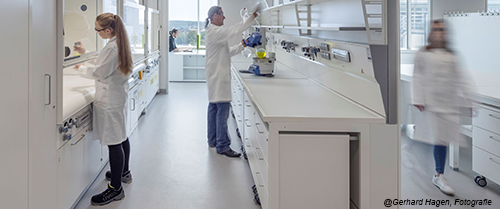Our Motivation


The importance of boron, the fifth lightest element in the periodic table, is rapidly growing in modern synthetic chemistry and materials science due to its unique properties. In its various forms, boron has electronic and structural flexibility that is arguably unmatched by any other element. This versatility provides the basis for a wide palette of potential applications, including as catalytic substrates, ligands for catalysts and catalysts themselves, pharmaceuticals, imaging agents, components in organic electronics, nanoscale materials, and many more. The Suzuki reaction, which depends on boron-containing reagents, is an excellent example of boron's utility: recognized by the Nobel Prize in Chemistry in 2010, this reaction is applied on a scale of more than 100 tons per year for the production of important pharmaceuticals and agrochemicals. The flexibility of boron's structural and electronic properties underpins another major area of modern boron chemistry: the synthesis of molecules for use in electronic devices that contain the element boron as an integral, property-determining component. The potential of these boron-containing materials has already been realized in the areas of liquid crystals, organic light-emitting diodes (OLEDs), organic solar cells (OPVs), dye-sensitized solar cells (DSSCs), lithium-ion batteries, and organic transistors (OFETs).
The ICB is a globally unique competence center with a focus on the chemistry of the element boron and its use to solve societally important challenges in the areas of resource conservation and energy. The ICB offers the employees of the participating research groups state-of-the-art infrastructure to realize their research goals in close and interdisciplinary cooperation.




